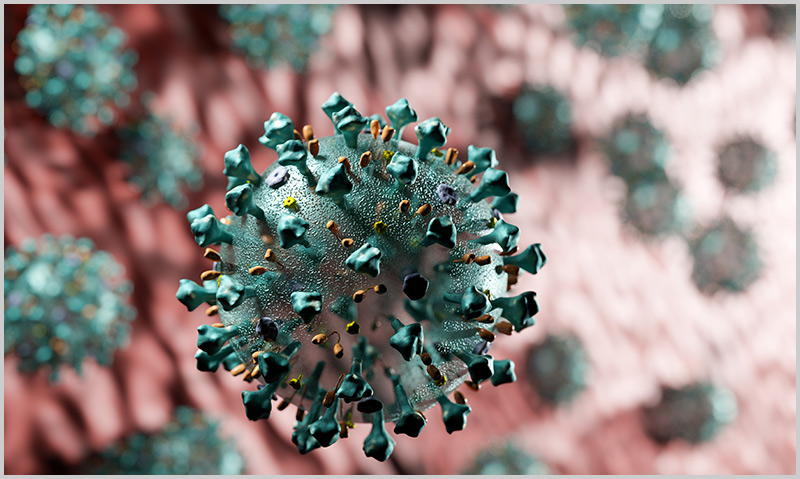COVID-19 viral infection may increase risk of neuropsychiatric sequelae
Study examines COVID-19 and historical evidence of post-viral neuropsychiatric complications

This newly published article discusses the impact of COVID-19 viral infections and the potential risk of developing neuropsychiatric complications. The authors of this study examine historical evidence of post-viral neuropsychiatric sequelae, the need for close monitoring of COVID-19 patients to determine neuropsychiatric outcomes, and encourage a psychoneuroimmunlogy perspective to assist in public mental health. 1
The authors of this study found, “diverse types of neuropsychiatric symptoms, such as encephalopathy, mood changes, psychosis, neuromuscular dysfunction, or demyelinating processes may accompany acute viral infection, or may follow infection by weeks, months, or longer.”
Understanding the characteristics of post-viral neuropsychiatric symptoms in the aftermath of SARS CoV-2 infection and uncovering pathogenic mechanisms that can direct targeted interventions will be critical.
Clinical points of note that include laboratory comparisons show:
- significantly lower total blood lymphocyte counts in patients with CNS-associated (e.g. headache, dizziness, ataxia) or muscular (e.g., myalgia) symptoms
- elevated plasma C-reactive protein (CRP) in patients with muscular symptoms compared to patients without muscular involvement.
- significantly higher plasma granulocyte macrophage colony-stimulating factor (GM-CSF) levels in SARS CoV2-CNS patients
- significantly higher blood plasma levels of pro-inflammatory cytokines (e.g., interleukin (IL)-6, tumor necrosis factor (TNF)-alpha, IL-8, IL-10, IL-2R) among fatal COVID-19 cases, indicative of “cytokine storm syndrome” which was also reported in SARS-CoV-1
When discussing neuropsychiatric symptoms related to post-viral sequelae, the authors describe previous studies that have elucidated how a viral infection can create an inflammatory process that causes an abnormal immune response. This can lead to the production of autoantibodies that are cross-reactive with viral antigens and self-antigens.
The Cunningham Panel™ measures the level of certain autoantibodies directed against brain and CNS targets that are associated with post-infectious neuropsychiatric disorders. Let us know if we can assist you in your clinical management of patients who may be suffering from autoimmune-based neurologic and/or psychiatric symptoms.
Schedule Your Personal Phone Consultation
Learn more about how the Cunningham Panel™ of tests can assist you in diagnosing treatable autoimmune encephalopathies characterized by abnormal neuropsychiatric behaviors. Schedule your personal phone consultation with a Moleculera Labs clinical staff member by completing the form below.
- Emily A. Troyer, Jordan N. Kohn and Suzi Hong, Brain, Behavior, and Immunity, https://doi.org/10.1016/j.bbi.2020.04.027





